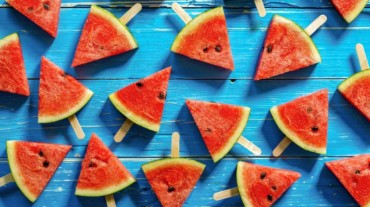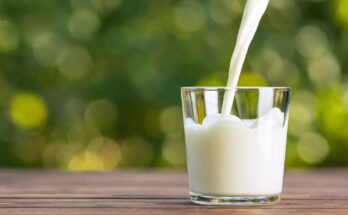As the summer temperature touches new heights, children have made a comeback to schools post the Covid-19 pandemic. Acclimatizing to the world outside the comfort of their house can come with its share of struggles. Fatigue, dehydration, tummy troubles and heatstroke are some of the problems they can face. But you can help them, dear mommies, by feeding the kids the right set of summer foods that are effective ways to prevent dehydration and heatstroke.
P. Santana Priyadarshni, Nutritionist, Medall Blume, Chennai, reminds that the human body contains up to 60 percent water, and that every cell, tissue, and organ in the body needs water to function properly.

“We require water to maintain the body temperature, remove waste and lubricate the joints. Water loss from the body happens constantly through breathing, sweating, urinating, etc. Hot and humid weather increases the amount of sweat, thereby increasing fluid and electrolyte loss from the body,” says Priyadarshni.
Given how children are used to playing outside, they are more prone to dehydration, especially during summer. Dehydration happens when more fluids go out of the body than the amount of fluids that are taken in. This leaves the body without enough water or other fluids to carry out normal functions.
What are some signs of dehydration?
One of the most basic signs of dehydration is feeling thirsty. Other signs include dry mouth, headache, urinating and sweating less than usual, dark coloured urine, dry skin, feeling tired and dizzy, says the expert.
On the other hand, a heatstroke or sunstroke is more serious and occurs when the body is not able to control its temperature. The body temperature rises rapidly and the body is unable to cool down, as the sweating mechanism also fails in a heat stroke.
Very high body temperature, altered mental state, slurred speech, loss of consciousness, etc. are some signs of heatstroke.

How to prevent dehydration?
Stressing on the importance of preventing dehydration and heatstroke from happening, Priyadarshni suggests:
* Avoid going out during excess heat
* Dressing in loose, cotton clothes
* Keep the body well hydrated is a necessity for normal functioning
* Children should be taught the importance of drinking more water, especially during playing or sports activities.
The expert also points out how kids may not know the difference between thirst and hunger, and so they must be encouraged to sip water in small quantities throughout the day. “Sipping water with a small amount of salt or lemon water with salt can also be encouraged during physical activities as it helps in re-hydration while balancing the lost minerals through sweat,” she adds.
While water intake is non-negotiable to prevent dehydration, some foods can also come to the rescue of worried parents.
Foods and ways prevent dehydration among children:
1. Fruits and vegetables:
Feeding children with plenty of vegetables and whole fruits will also contribute to fluid consumption along with fiber and micronutrients. Vegetables and fruits rich in water content can be included in plenty for children. These include cucumber, watermelon, lettuce, zucchini, orange, etc.
Also Read: Eat your water with these 6 hydrating superfoods that will boost your health

2. Coconut water:
Tender coconut water can be given to children every day as it is rich in electrolytes such as sodium, potassium, and chloride.
3. Yoghurt
Yoghurt is one of the best foods to eat during summer. Not only does it cool down the body, yoghurt is a rich probiotic and is extremely good for the gut microbiota and helps in better digestion and absorption of the food. Plain yoghurt with salt or yoghurt with berries made into smoothies is a great option.
Thin and mildly spiced (cumin powder and coriander leaves) buttermilk is also another good option for re-hydration.
4. Infused water
This can be given to children to increase their water consumption. Infused water makes drinking water more interesting as it gives a different flavour to the water. Water can be infused with a variety of ingredients including mint, ginger, lemon wedges, cucumber, watermelon, apple slices, orange, strawberry, cloves, cardamom, cinnamon, cumin seeds, fennel seeds, etc.
Infused water, lemon juice, herbal teas, etc. can be had with a little bit of salt, to improve the taste and balance the lost salts and minerals from the body.
5. Soup
Warm broth/ soups made with vegetables or chicken/ mutton bones can be given to children often as they are nutrient-dense and re-hydrating.

What should be avoided?
Fruit juices should be avoided as they will increase the sugar intake and do not contain the fiber of the fruits which are hugely beneficial. Beverages high in sugar content are commonly available and are tempting for children. Excess sugar intake is generally known to worsen dehydration. So, all processed beverages including bottled juices, carbonated drinks, sports drinks, etc. should be avoided.
The last word
Children may not be keen on hydrating themselves as often as they should. Elders at home and school should encourage children to drink water and eat water-based vegetables more often in summer. They should be made to have water during physical activities and playtimes. It is the responsibility of elders to keep themselves and their children well hydrated and healthy during all times!
Source link




